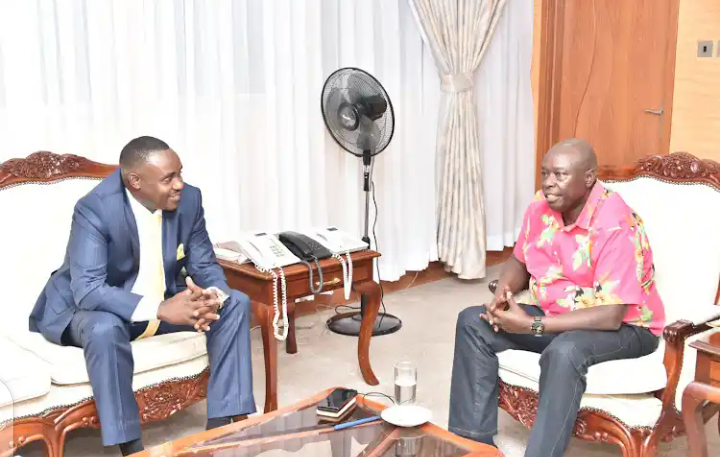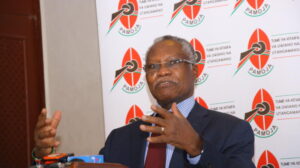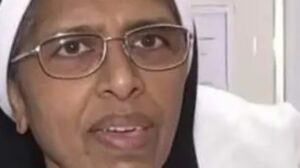Cleophas Malala and Deputy President Rigathi Gachagua are currently navigating significant challenges within the ruling United Democratic Alliance (UDA) Party, reflecting the deepening power struggles and internal conflicts threatening their positions.
The recent events surrounding these key figures highlight the escalating tension within UDA, raising questions about their futures in the party.
Malala’s attempt to postpone grassroots elections in five counties—Nairobi, West Pokot, Narok, Busia, and Homa Bay—was a notable flashpoint.
His announcement was swiftly dismissed by the UDA National Elections Board (NEB) chairperson Anthony Mwaura, who insisted that the elections would proceed as planned.
Mwaura cited a ruling by the Political Parties and Disputes Tribunal that barred Malala from interfering with party elections, accusing him of overstepping his boundaries.
This direct rebuttal to Malala’s authority has significantly weakened his standing within the party, underscoring the precariousness of his position.
The friction within UDA extends beyond election scheduling. Just 48 hours before the NEB’s statement, Malala issued warnings to prominent UDA members, including Oscar Sudi, Kipchumba Murkomen, and Nyeri Governor Mutahi Kahiga, urging them to stop disrespecting Deputy President Rigathi Gachagua and the party leadership.
However, these warnings were met with open defiance. Oscar Sudi dismissed Malala’s warning via social media, derisively referring to him as an “elevated MCA.”
Governor Kahiga went a step further, calling for Malala’s ouster in the next party elections.
This open defiance from senior party members has exposed the deep-seated animosities and power struggles within UDA, further eroding Malala’s authority.
Deputy President Rigathi Gachagua, a pivotal figure in supporting Malala, is also facing his share of challenges. Gachagua’s influence in the party, particularly in the Mt. Kenya region, is being questioned.
He has been funding Malala’s political activities in the Western region to counter Prime Cabinet Secretary Musalia Mudavadi of the Amani National Congress (ANC) Party.
This move is seen as part of a broader strategy to secure Gachagua’s political future amid fears that President William Ruto might favor Mudavadi as his successor in 2032.
Gachagua’s attempts to solidify his position as the Mt. Kenya kingpin are being undermined by key allies of President Ruto, such as Oscar Sudi.
These allies are reportedly encouraging young politicians to challenge Gachagua’s authority as early as the 2027 elections, a move that could significantly weaken his influence in the 2032 succession politics.
This internal strife highlights the precarious nature of Gachagua’s current standing within the party and underscores the broader instability within UDA.
As UDA grapples with these internal conflicts, the futures of Malala and Gachagua hang in the balance.
The unfolding power struggles and growing divisions within the party not only threaten their individual positions but also the unity and stability of UDA as a whole.
The resolution of these conflicts will be crucial in determining the future direction of the party and the political trajectories of its key figures.





















Add Comment